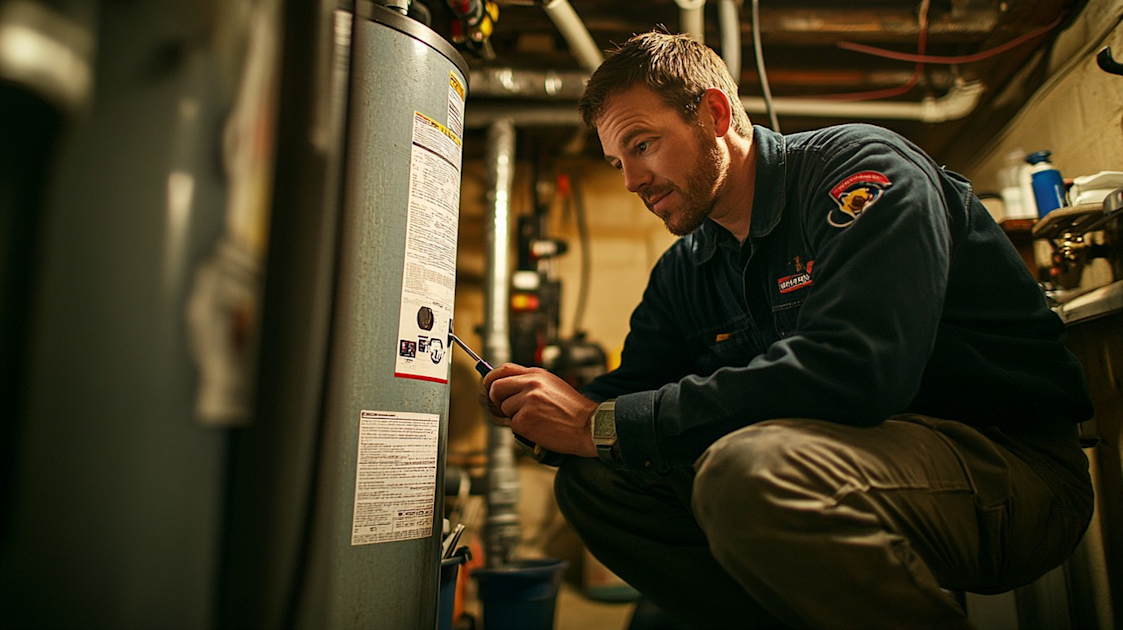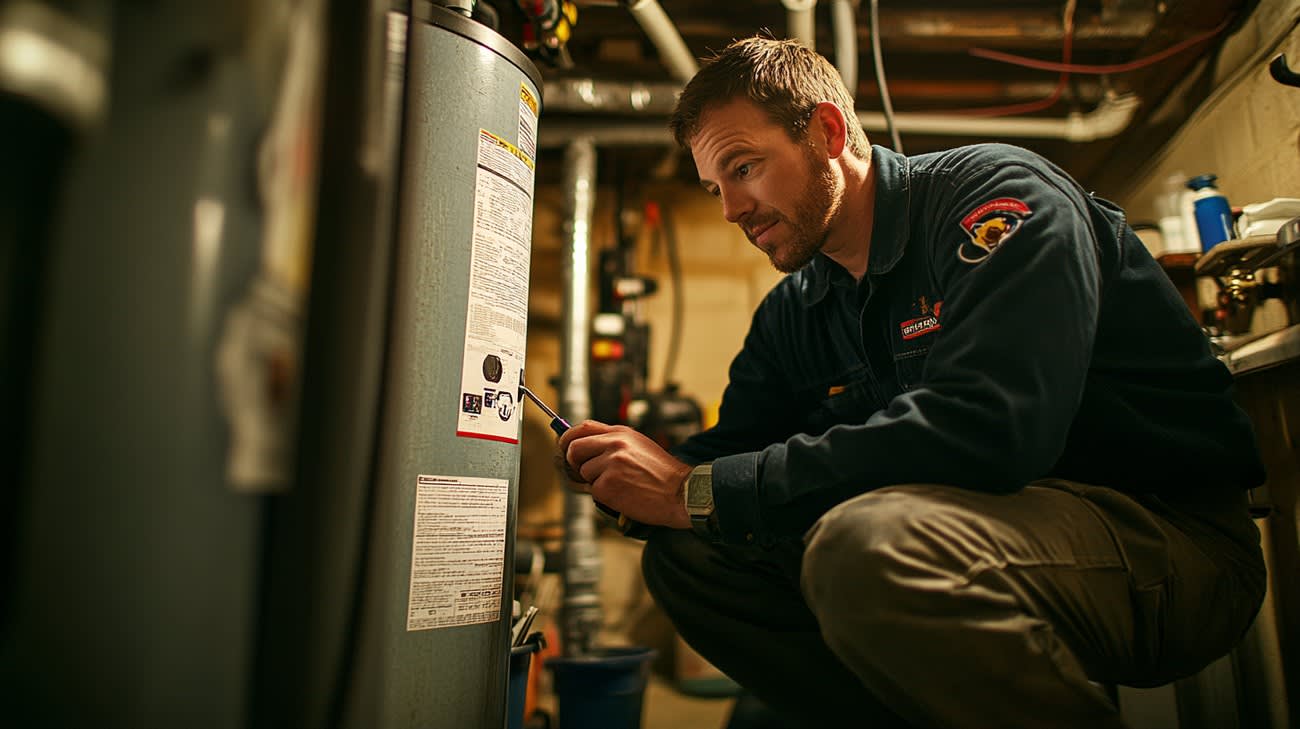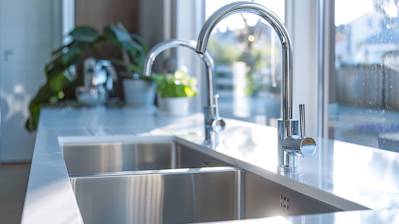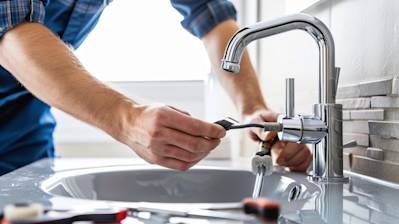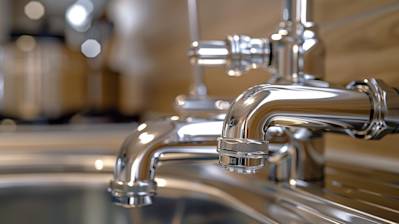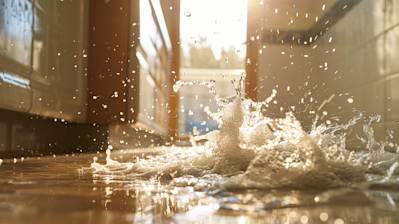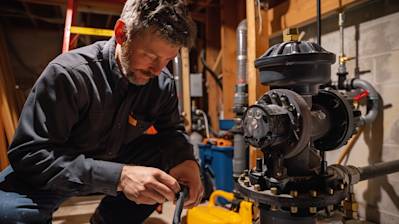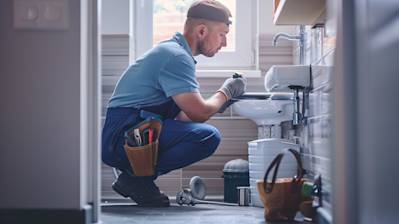Your hot water heater is the silent hero in your household, tirelessly working to give you warm, comforting showers, and support various other essential tasks. However, like any other hardworking appliance, a hot water heater sometimes experiences problems that necessitate repair. In this informative guide, we will take a deep dive into the world of hot water heater repair, detailing common issues you might encounter, how to diagnose them, and what to expect during the repair process.
Understanding Your Hot Water Heater
Before you begin grappling with the topic of hot water heater repair, it's crucial to comprehend how this appliance operates. Whether you have a gas, electric, or tankless water heater, understanding the basics will come in handy when troubleshooting faults.
Here's what a standard water heater entails:
- A Reservoir meant to hold and heat the water
- Heating elements that warm up the water
- A Thermostat to monitor and maintain the water temperature
- Pipes that transport the water in and out of the heater
The complexity of these systems reinforces the need for professional assistance when handling hot water heater repair.
Common Hot Water Heater Issues
Water heater problems can manifest in a variety of ways. Here are just a few common complications you may encounter:
- No hot water: The most stark and frustrating sign of trouble, a complete absence of hot water, could indicate a problem with the heating element, thermostat, or gas supply.
- Insufficient hot water: If you're receiving some warm water but not enough to meet your needs, it may be as simple as adjusting the thermostat. However, it may also reflect a more serious issue, such as a faulty thermostat or a tank that's too small for your needs.
- Water leaks: These can stem from valves, pipes, or even the tank itself, and can lead to concerning water waste and potential damage.
Signs You Need a Hot Water Heater Repair
Apart from the noticeable signs like no hot water or leaks, here are some subtle signs that might indicate your water heater needs repair:
- Fluctuating water temperatures
- Unusual noises from the heater
- Discolored or foul-smelling water
- An increase in your water bills
If you notice any of these signs,its' time to contact a professional for hot water heater repair. Remember, timely repairs can save you from expensive replacements.
DIY or Professional Service: Making the Right Choice
Hot water heater repairs can be complex and they demand a certain level of technical know-how. While some individuals may have the skills to handle minimal issues, the majority of homeowners would benefit from professional assistance.
Considerations to make when choosing between DIY and professional repair include:
- Safety: Working with water and electricity or gas on your own can be hazardous.
- Complexity of the issue: Some issues are beyond the scope of DIY and demand professional attention.
- Warranty considerations: Tampering with your heater could void your warranty.
- Cost-effectiveness: Sometimes hiring a professional is more cost-effective in the long run as it prevents further damage.
What to Expect During Hot Water Heater Repair
When you hire a professional to repair your hot water heater, you can expect the following steps in the repair process:
- Assessment: They will first diagnose the problem by inspecting your water heater.
- Explanation: The professional will explain the issue, possibly giving you the cause and what needs to be done to resolve it.
- Repair: The professional will carry out the necessary repair work, which could range from replacing parts to adjusting settings.
- Testing: After repair work, the professional will test the water heater to ensure that everything works optimally.
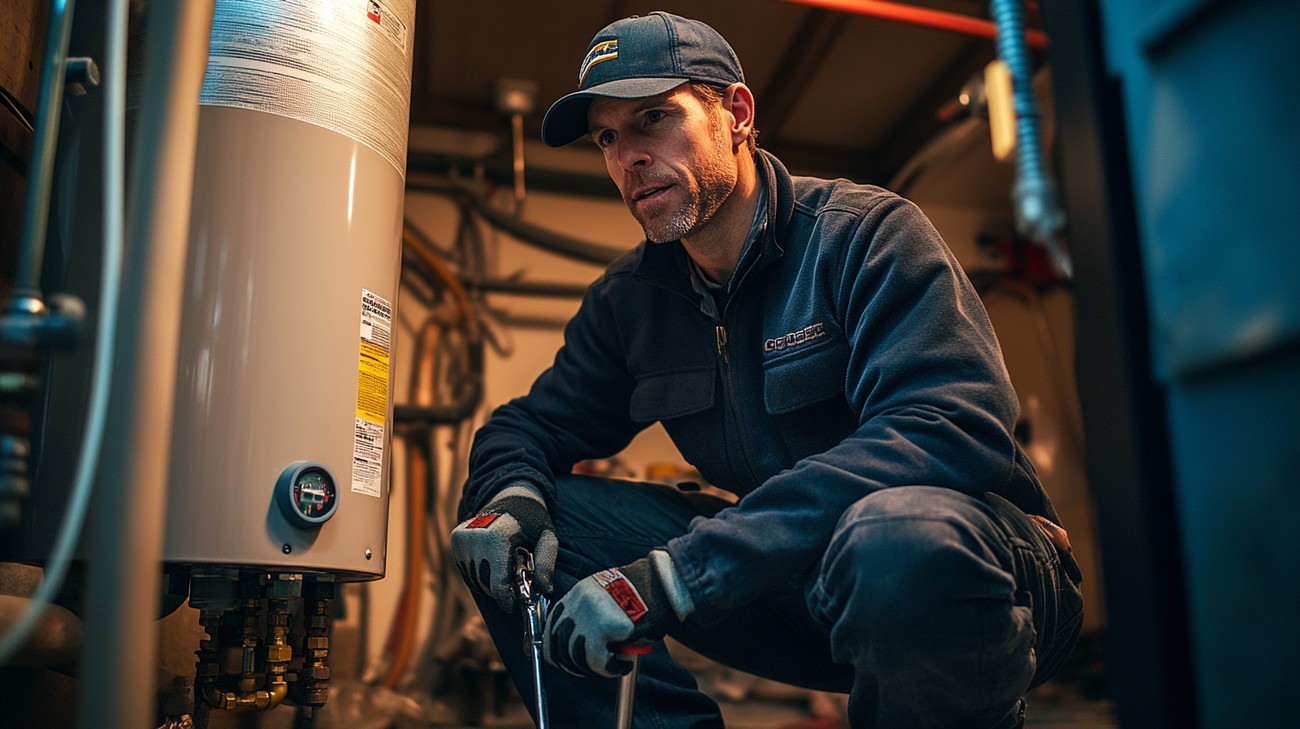
Frequently Asked Questions about Hot Water Heater Repair
How often should I get my hot water heater repaired?
The frequency of hot water heater repairs depends on how well you maintain it. Regular annual maintenance reduces the chances of severe damage. However, if your heater is over 10 years old, it might need more frequent checks and repairs, even if it's properly maintained.
Can I do the hot water heater repair myself?
While some minor issues with a hot water heater, like relighting a pilot light, can be resolved by homeowners, it's highly advised to have any significant repairs done by professionals. Incorrect efforts can lead to more damage, higher repair costs, and in some cases create safety hazards.
When should I replace my water heater instead of repairing it?
Generally, if your water heater is over 10-15 years old, it might be more cost-effective to replace it rather than continue to repair it. Also, when the cost of repair exceeds half the price of a new heater, or when it keeps breaking down frequently even after multiple hot water heater repairs, replacement would be a better option.
Is it normal for a hot water heater to make noise?
While it's common for a hot water heater to make a slight humming or popping noise, extremely loud or unusual sounds could be a sign of a problem. It might be due to the buildup of sediment in the tank. If your heater makes these loud noises, consider calling a professional for hot water heater repair services.
What causes a hot water heater leak?
A leak in your hot water heater could happen because of several reasons. It could be because of a loose draining valve, excessive pressure build-up within the tank, or even because the tank itself is corroded. If you notice a leak, be sure to contact a hot water heater repair professional to diagnose and fix the problem.
How can I maintain my hot water heater to avoid frequent repairs?
Regular maintenance actions can help avoid frequent repairs of your hot water heater. These include annually draining your tank to flush out sediment, regularly checking the pressure-relief valve, and inspecting your anode rod every 3-5 years.
What is the lifespan of a typical water heater?
A typical tank-style hot water heater can last anywhere between 8 and 12 years, while a tankless hot water heater can last up to 20 years or even longer with proper maintenance. If you're uncertain about your heater's life expectancy, a professional can inspect it during a routine hot water heater repair or maintenance visit.
Why does my hot water smell like rotten eggs?
If your hot water has a rotten egg smell, it could be due to bacteria reacting with the anode rod in your water heater. This reaction produces a strong sulphur-like smell. A professional can resolve this issue during a hot water heater repair call by replacing the anode rod or flushing the heater with a chlorine bleach solution.

Pros of Hot Water Heater Repair
Economical
Cost-Effective compared to Replacement
Hot water heater repair can often be more cost-effective than a complete replacement. Fixing a single component or making a few tweaks might be all it takes to restore your water heater's functionality, which could save you hundreds, if not thousands, of dollars.
Reduces Energy Consumption
A faulty water heater can consume excessive energy as it struggles to heat water. By repairing any malfunctions, your water heater will be able to operate more efficiently, thus reducing your overall energy consumption and lowering your utility bills.
Re-Usability
Extends the Lifespan of the Device
Hot water heater repair can extend the lifespan of your equipment. This is particularly important if your water heater is still relatively new and has not outlived its expected lifecycle. A proper repair job can give your heater several more years of service, making it a worthwhile investment.
Environmentally Friendly
By repairing your hot water heater, you are helping to reduce waste. Disposing of an old water heater in a landfill can have environmental impacts. In contrast, repairing reduces waste and helps in environmental conservation.
Convenience
Fewer Interruptions to Your Routine
Hot water heater repairs typically take less time than a full replacement, which means less disruption to your daily schedule. Your water supply will not have to be shut off for extended periods, ensuring convenience for your household or business.
Prevents Potential Damage
Leaks and other problems can cause damage to your property if left unattended. Hot water heater repair can prevent these issues, saving you from potential costly repairs.
Cons of Hot Water Heater Repair
Temporary Solution
Not a Long-Term Solution for Old Units
While repairing your hot water heater can extend its life, it is not a permanent solution, especially for older units. If your heater has been showing consistent signs of wear and tear, or if it is nearing or past its expected lifespan, a repair might serve as nothing more than a temporary band-aid.
Frequent Breakdowns
In some cases, repairing a faulty water heater may lead to frequent breakdowns. Parts that are at the end of their lifecycle may fail repeatedly, leading to higher maintenance costs and time spent on repairs.
Quality of Repair
Dependent on the Expertise of the Technician
The success of a hot water heater repair largely depends on the expertise and skills of the technician performing the task. Inexperience or lack of knowledge can lead to poor repairs, resulting in more frequent malfunctions or even risking further damage to your unit.
Inadequate Repair May Cause Severe Damage
Trying to repair your hot water heater can sometimes make the problem worse, especially if the repair isn't carried out properly. This can lead to severe damage to the unit and even pose safety risks.
Cost
Continuous Repair Might be More Expensive
If your water heater requires frequent repairs, the accumulated costs might end up being higher than the cost of buying a new unit. In such a case, replacement could be the more economical option.
Unpredictable Expenses
While an initial repair might seem more affordable, it could end up costing you more in the long run. Unexpected problems and additional required repairs can push up the price unexpectedly.

Myths and Misconceptions About Hot Water Heater Repair
The topic of hot water heater repair is one that often leads to a plethora of myths and misconceptions. Some of these beliefs can lead to unnecessary costs, failures, and even dangers. This section aims to debunk some of these common misunderstandings.
Myth 1: You Can Do It Yourself
Many people opt to tackle hot water heater repairs on their own to save on costs. Several YouTube guides and DIY blogs may make this seem a feasible option.
The danger of DIY
While being a handyman or woman is commendable, it's essential to remember that hot water heaters can be quite complex. Repairing these appliances involves dealing with high-pressure water systems, gas lines, or electricity, all of which are potentially hazardous to those not fully trained. Mishandling can lead to catastrophic events like gas leaks or explosions.
Expertise and tools
Beyond safety, the issue of proper tools and expertise comes into play. Some repairs can only be effectively done with specific equipment that might not be readily available to a regular homeowner. In addition to tools, heating systems require precise calibration to work efficiently – a nuanced task best left to specialists.
Myth 2: Repair is Always Cheaper than Replacement
When your water heater starts to fail, your main options are to repair the unit or replace it entirely. Many homeowners gravitate towards the idea of repair under the assumption that it's always the cheaper option.
Short-term vs. long-term costs
While immediate repair costs might seem lower than replacement, they can pile up over time, especially with an older unit that frequently breaks down. In these cases, the frequent repair costs coupled with the decreased energy efficiency of an older unit can add up to be more expensive than a new heater.
Technological advancements
The advancement of heating technology has made new models much more energy-efficient. Modern heaters can reduce your monthly energy bills significantly, which, over time, can buffer or even offset the upfront cost.
Myth 3: No Noise, No Problem
Many people believe that as long as their water heater is silent, it’s in perfect operating condition. This misconception can lead to major undetected problems.
Silent symptoms
Water heaters often show silent symptoms of deterioration. Leaks, sediment build-up, and wear on the heating elements don't necessarily produce detectable noises. Regular inspections by professionals are necessary to catch these silent issues early.
Myth 4: All Water Heaters are Created Equal
The notion that all water heaters function identically and therefore require the same maintenance or repairs is another widespread myth.
Different types, different needs
There are different types of water heaters: tankless, conventional, heat pump, solar-powered, etc. Each comes with unique maintenance needs and potential repair issues that need to be addressed differently. For example, tankless models don't face issues of sediment build-up within a tank, whereas conventional models do.
Myth 5: Longer Warranty Equals Longer Lifespan
Many people equate a longer warranty to a longer lifespan of the water heater.
Warranty vs lifespan
Warranties often cover specific components of the heater and certain types of failure within a set period. Having a longer warranty does not necessarily mean the unit will last longer.
Regular professional maintenance, correct usage, and prompt repair at the first sign of trouble, frequently determine the lifespan of a water heater. That’s why understanding these myths and misconceptions about hot water heater repair is crucial. Knowledge, coupled with regular professional maintenance, will ensure that your hot water heater functions efficiently and safely for many years.
Summary
So, as we've seen throughout this discussion, hot water heater repair can be a necessary task for ensuring the functionality and longevity of your appliance. It's one of those household chores that can't be left unattended, especially during cold seasons. The good news is, with a bit of research and the right tools, some issues can be fixed without the need to call a professional. Remember though, safety is paramount, and if the problem seems beyond your skill set, it's best to connect with a professional.
To keep up with the care and maintenance, remember to schedule regular check-ups for your hot water heater. Familiarize yourself with the basic troubleshooting guidelines and quick fixes. When repairs are needed, know whether it's a job you can handle or if it's time to call in the professionals. Hot water heater repair is a skill worth knowing in the long run, but don't be too hard on yourself if you need a helping hand.
Lastly, hot water heaters are quite intricate appliances, so don't beat yourself up if you can't figure out how to fix them on your own. Even with all the YouTube tutorials and DIY blogs, it's completely okay to seek professional help when it comes to hot water heater repair. After all, the goal here is to ensure a consistent supply of hot water in your home safely and efficiently.
About KYPD Plumbing
KYPD Plumbing is your trusted plumbing expert located right in the heart of Lexington, KY. We specialize in delivering top-notch plumbing solutions, from resolving leaks and blockages to carrying out installations and repairs. Our team is composed of highly skilled professionals who bring along vast experience and intense passion. We are known for providing quality work and excellent customer service. At KYPD Plumbing, we strive to meet and exceed our customers' expectations, ensuring their homes and businesses are always functioning at their best. So whether you have a small repair job or a major plumbing project, remember, KYPD Plumbing has got you covered!
Tags: water heater, repair, hot,

